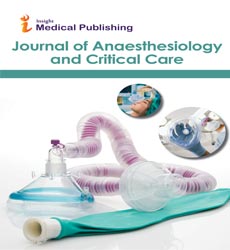Humanistic Medicine in Anaesthesia: Creation and Evaluation of a Humanism Curriculum for Postgraduate Anaesthesia Trainees
Danielle Perret*
Department of Anesthesiology, University of California, USA
- *Corresponding Author:
- Danielle Perret
Department of Anesthesiology, University of California, USA
E-mail: danielleperet@gmail.com
Received Date: September 03, 2021; Accepted Date: September 22, 2021; Published Date: September 29, 2021
Citation: Danielle P (2021) Humanistic Medicine in Anaesthesia: Creation and Evaluation of a Humanism Curriculum for Postgraduate Anaesthesia Trainees. J Anaesthesiol Crit Car. Vol.4 No.1:04
Keywords
Patient outcomes; Anesthesia curriculum; Burn out humanism.
Introduction
Humanism is defined as a "respectful and compassionate relationship between physicians, members of the health care team, and their patients" based on integrity, excellence, collaboration, compassion, respect, and empathy, which is dedicated to addressing humanism in healthcare. Despite the fact that humanism is a cornerstone of patientcentered care, there are surprisingly few residency training programmes that include humanism and compassion as part of the academic curriculum. Non-surgical programmes, such as family medicine, internal medicine, and paediatrics, are among those that do, and physicians in these specialties score much higher on empathy assessments than their peers in anaesthesia and other surgical specialties. With growing production demands in healthcare and the rise of the electronic health record, the necessity for a formal humanism curriculum may become even more crucial.
If the EHR has allowed healthcare to transform into a data-driven science, allowing data to be centralised and available for individual care as well as advances in digital health one of the unintended consequences is a loss of personal interactions between patients and their healthcare providers, as well as between healthcare teams, which are often credited with contributing to physician. Physician burnout is exacerbated by dehumanisation, as well as feelings of emotional tiredness and low personal accomplishment. Anaesthesiologists and anaesthesiology trainees are not immune to the aforementioned unpleasant occurrences, with up to 50% of anaesthesiologists expressing burnout at some point during their training, with depersonalization of healthcare listed as a prevalent component. With so many anaesthesiologists expressing fatigue, adopting a formal humanism curriculum to counteract the impacts of a hidden curriculum, where educators educate by example and unknowingly transmit a culture lacking of sympathetic medical care, is a good idea.
The purpose of this comprehensive humanism curriculum was to create a formal training programme for anaesthesiology residents in order to deliver compassionate, patient-centered care. This is critical since surgery can be a particularly traumatic life event, and anaesthesiologists play a critical role in shaping the perioperative experience of patients. Empathetic care improves patient outcomes by reducing anxiety, enhancing communication and so improving patient care, according to a growing body of research. Our findings back this up by demonstrating that following the intervention, self-reported humanistic skills, patient-perceived humanistic skills, and patient-reported pain and anxiety scores all improved. Humanism, compassionate communication, and personalising the perioperative environment are all skills that few anaesthesiologists have received formal training in. The perioperative medical humanism programme focuses on teaching humanism and empathic communication in this unique setting, contextualising perioperative patient care.
Empathy and professionalism are essential elements of effective patient-centred care. Our findings suggest that a successful humanism programme should attempt to change citizens' attitudes as well as their behaviours. The gains in resident self-assessment of empathy scores represent the success of secondary curricular attitude modifications, whereas improvements in patient impression of provider empathy and professionalism suggest the implementation of humanistic provider behaviours. Although the overall goal was to improve the patient experience by developing a formal curriculum to improve empathy and communication in perioperative medicine, one of the unintended themes that emerged was how the training individualised the trainee's patient-care experience, improving their experience and how they relate to patients. This is significant since depersonalization of healthcare has lately been identified as a major contributor to physician burnout. Burnout is increasingly becoming a problem among practising healthcare providers, not just trainees.
Our findings imply that incorporating humanism into perioperative medicine education can lead to better physician empathy and professionalism, which can lead to reduced patient anxiety, pain, and overall satisfaction with perioperative care.
Open Access Journals
- Aquaculture & Veterinary Science
- Chemistry & Chemical Sciences
- Clinical Sciences
- Engineering
- General Science
- Genetics & Molecular Biology
- Health Care & Nursing
- Immunology & Microbiology
- Materials Science
- Mathematics & Physics
- Medical Sciences
- Neurology & Psychiatry
- Oncology & Cancer Science
- Pharmaceutical Sciences
